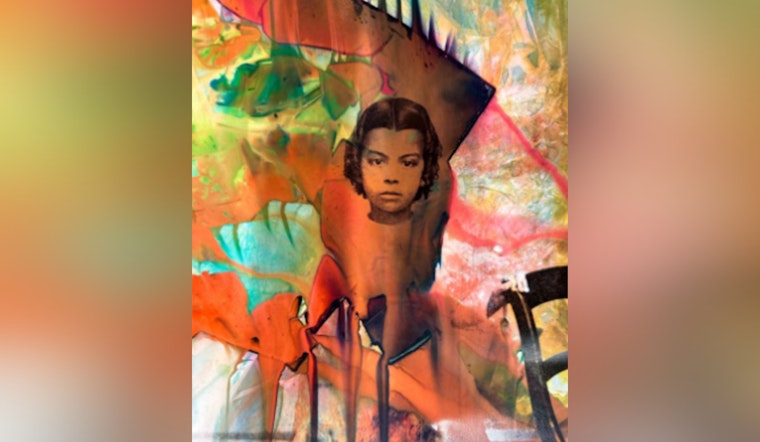Maya Freelon’s upcoming art installation at Historic Stagville, “Whippersnappers: Recapturing, Reviewing, and Reimagining the Lives of Enslaved Children in the United States,” aims to bring attention to uncomfortable truths about history. The exhibition, opening on November 16, seeks to break the silence surrounding the lives of enslaved children with vibrant, powerful art, as reported by North Carolina Department of Natural and Cultural Resources.
Maya Freelon’s exhibition at Historic Stagville doesn’t shy away from the plantation’s dark history. Her large-scale sculptures and mixed-media pieces are displayed in the 1799 Bennehan House, spreading across six rooms over two floors. Freelon transforms spaces, including an attic once hidden from the enslaved children it now honors, and a room used for childbirth, which is reimagined to promote healing and remembrance. Using her unique bleeding tissue paper technique, Freelon combines fragile materials with the strength of the stories they represent, bringing new life to Historic Stagville.
The artist’s inspiration traces back to the cherished time spent with her grandmother in Massachusetts, where she honed her craft, a part of a lineage of creatives including her father Phil Freelon, the architect behind the Smithsonian’s National Museum of African American History and Culture, and her namesake, the celebrated writer Dr. Maya Angelou. “Through Whippersnappers, I want to use the healing potential of art to shine a light on a subject often ignored and reclaim a space that was once used to disempower and oppress,” Freelon stated, emphasizing the exhibit’s role in fostering collective healing by honoring the innocence of childhood, a statement obtained by North Carolina Department of Natural and Cultural Resources.
Organized by the Art on the Land initiative, which intends to reinvent historic places with modern artistry, the installation’s curation by Michelle Lanier and Johnica Rivers makes a definitive step in marrying archives and art to challenge historical perceptions, with Rivers noting “Maya Freelon’s powerful offering to our youngest ancestors will activate Stagville’s historic landscapes and interiors with a posture of healing through reclaiming and reframing memory.” The exhibition, set to last until January 25, 2025, also marks a major stride for the Library of Congress’ Connecting Communities Digital Initiative and highlights the Mellon Foundation’s commitment to new forms of engagement with history and its keepers as told by Freelon “Enlarging these images of children beyond their original sizes, Freelon confronts viewers with their undeniable presence, recognizing the biases and omissions in historical records,” a statement obtained by North Carolina Department of Natural and Cultural Resources.
Note: Thank you for visiting our website! We strive to keep you informed with the latest updates based on expected timelines, although please note that we are not affiliated with any official bodies. Our team is committed to ensuring accuracy and transparency in our reporting, verifying all information before publication. We aim to bring you reliable news, and if you have any questions or concerns about our content, feel free to reach out to us via email. We appreciate your trust and support!



Leave a Reply